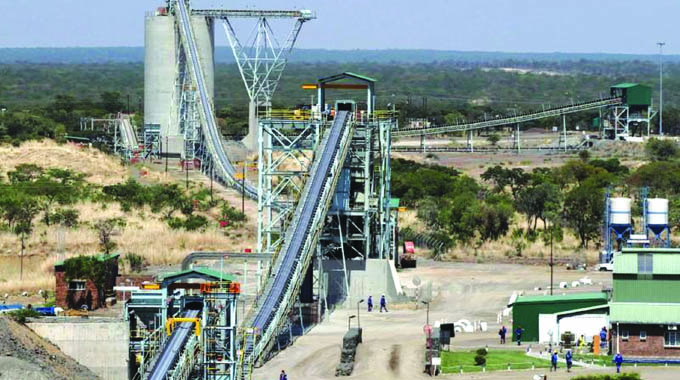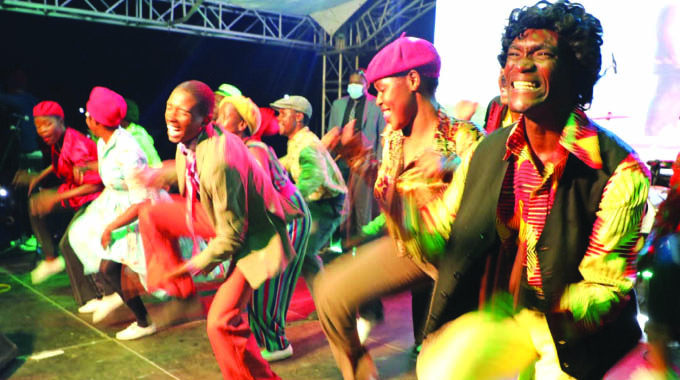Mining to drive growth: President

Oliver Kazunga Senior Business Reporter
Zimbabwe’s mining industry has “immense” potential to drive socio-economic development and growth of the economy, underpinned by strategies designed to transform the sector to a US$12 billion industry by 2023.
President Mnangagwa said this during his address to the nation to mark Zimbabwe’s 42 years of Independence from colonial rule in Bulawayo on Monday.
The Second Republic has set a target to achieve the US$12 billion milestone by 2023 buoyed by minerals such as gold, platinum, diamond, chrome, lithium and coal, among others.
“The mining sector has immense potential to spur socio-economic development and growth of the economy.
“Due to the responsive strategies, we are on course to achieve the target of a US$12 billion mining industry by 2023.
“It is also pleasing to note that artisanal and small to medium scale gold miners contributed 62 percent of the total gold deliveries to Fidelity Printers in 2021,” he said.
Last year, Zimbabwe’s total gold output was 29,6 tonnes.
Given that Zimbabwe recently assumed the vice chairmanship of both the Kimberley Process Certification Scheme and the African Diamond Producers Association, before subsequently assuming chairmanship next year, the two portfolios would be leveraged to achieve maximum value from the diamond mining sector.
President Mnangagwa said the Government also continued to avail the requisite support and enabling environment towards the resuscitation and growth of industry and commerce.
“Capacity utilisation in the manufacturing sector has increased beyond 65 percent, resulting in locally produced basic consumer goods constituting about 70 percent of the market.”
He said the Government was prioritising rural industrialisation leveraging on the various unique resources within respective communities.
Zimbabwe’s annual export earnings are projected to grow by more than 10 percent this year following the penetration of the export market by more businesses including those at grassroots level.
“With regards to tourism and hospitality, the increased number of airlines from three at the onset of the Second Republic, to the current 17 is a testimony of the growth trajectory of the sector as well as the undeniable success of the re-engagement efforts.
“The increased tourism investment of over US$142 million in 2021 and the anticipated rebound of the sector this year, will have positive spill offs to other sub-sectors of the economy including the arts, culture, and creative industries,” he said
“However, tourism players are encouraged to make our tourism products affordable for the locals under the ZimBhoo tourism promotion campaign.”
The President said the Government remained committed to creating opportunities in various sectors of the economy in line with the national development agenda.
This, he said is despite the adversity and difficulties ushered by the illegal economic sanctions and thus since attaining Independence on April 18, 1980, Zimbabwe has a lot to cherish.
“Equally, invaluable lessons have been learnt which will make the citizens actions more targeted for coordinated and balanced development.”
“Production, productivity, hard honest work, innovation, and an entrepreneurial culture are the cornerstones of all our individual and collective national effort,” he said.
“Hence, realistic and responsive approaches will continue to mould the implementation of our policies, projects and programmes, informed by the development mantra that, Ilizwe liyakwa ngabanikazi, Nyika inovakwa nevene vayo.”
To this end, he said the Second Republic is unwavering in its commitment to create opportunities in agriculture, mining, manufacturing, tourism, infrastructure, healthcare, education, sciences, and Information Communication Technologies, among others.
In this context, President Mnangagwa said Zimbabweans in the country and those in the diaspora should find their niche and invest back home.
Last year, the economy registered a 7,4 percent growth trajectory and this year gross domestic product (GDP) is expected to register a 5,5 percent growth leveraging on the peaceful environment, enhanced production and productivity as well as infrastructural development, a buoyant mining sector as well as a recovering tourism and hospitality industry.
The President Mnangagwa noted that in the current season, the agricultural sector has had mixed fortunes due to the impact of mid-season drought and recurrent Tropical cyclones in some parts of the country.
“However, our hopes for an adequate harvest remai high. Overall, the large-scale adoption of the Pfumvudza/Intwasa programme by our people throughout the country has had far reaching positive impacts to both household and national food security.
“Government has made adequate provisions to cater for grain requirements of vulnerable households and communities,” he said.
President Mnangagwa commended communities in climatic regions 4 and 5 of the country for increasing the growing of traditional grains in response to adverse effects of climate change.
To guarantee the consistent availability of wheat, he said the Government had come up with a comprehensive plan for the upcoming winter wheat farming season.
On infrastructural development projects the Government is spearheading, the long-awaited Gwayi-Shangani Dam in Matabeleland North will be completed during the course of the year.
The project was conceptualised in 1912 but its construction materialised following the ushering in of the Second Republic led by President Mnangagwa.
It is hoped that upon completion, the massive project will conclusively resolve the perennial water challenges in Bulawayo as well as resulting in a vibrant agriculture industry in Matabeleland North province.
“In Mashonaland East, construction of Kunzvi Dam which will cater for water requirements for the City of Harare has begun while the long outstanding construction of Tuli-Manyange Dam in Matabeleland South province, Vangu Dam in the Midlands as well as Bindura and Semwa dams in Mashonaland Central are progressing well.
“Marovanyati Dam in Manicaland province, Muchekeranwa Dam and Chivhu Dam in Mashonaland East province have been completed.”
President Mnangagwa said it was imperative for the country to lay a sound infrastructure base to facilitate sustainable socio-economic development, growth as well as to enhance our role towards regional connectivity and integration.
“As such, infrastructure development and expansion is being speeded up across all provinces.
“The Beitbridge-Masvingo-Harare road will be complete by year end, while road rehabilitation works are underway on the Beitbridge-Bulawayo-Victoria Falls road.
“Progress on the Nkayi-Bulawayo road, Zvishavane-Rutenga road and the Mberengwa-West Nicholson road is commendable,” he said.











Comments